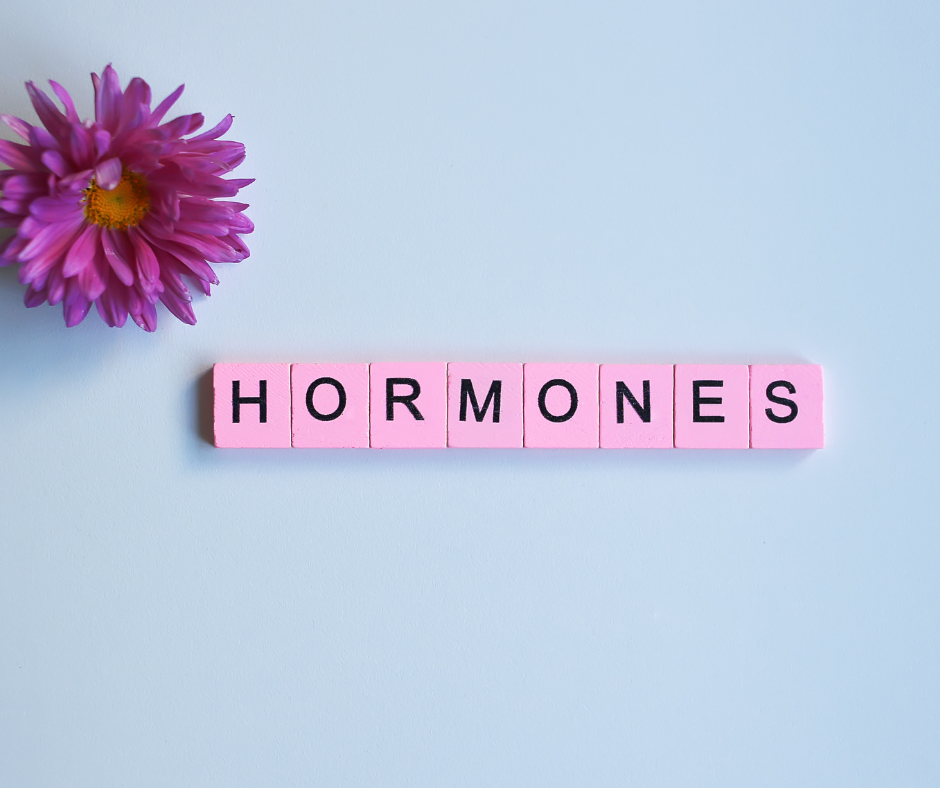Menopause Weight Gain and It’s Challenges
Have you noticed it becoming more difficult to maintain your ideal weight since entering menopause? Whether you are in perimenopause, menopause, or post-menopause, weight management suddenly becomes more challenging. Body fat starts to accumulate, making it harder to shed those extra kilos. You might feel like you haven’t changed your routine, but have you?
One common concern among women in this age group is the so-called “menopause belly.” This excess weight around the midsection becomes a common issue for women in their forties and beyond.
The drop in estrogen levels during menopause often leads to the accumulation of belly fat, which can have serious health implications. Excess weight around the abdomen can increase inflammation levels, raising the risk of heart disease and diabetes.
Hormones Important Role in your Health
Hormones are chemicals produced within and sent throughout your body to help regulate and control your body’s development. They play a large part in many of our daily functions as well as critical life milestones.
Hormones affect everything from blood sugar to blood pressure, growth and fertility, sex drive, metabolism, and even sleep. Their influence goes as far as changing the way we think and act day to day. There is no doubt that hormones are powerful.
Why are Women more Affected by Hormones?
There are quite a few major life events driven by hormonal changes in the female body—including puberty, pregnancy, and menopause. While men have the same hormones as women, they do not experience high levels or intense fluctuations (except at puberty).
Women experience more sudden and frequent hormonal changes. For some, these changes can cause difficult symptoms.
If you’re looking to tackle the menopause belly, here are some strategies to help you shed that stubborn belly fat.
Hormone Health Starts with the Right Nutrients!
Here are 5 key nutrients that help support hormone production:
Magnesium: This powerful mineral helps regulate estrogen and progesterone balance. It even supports progesterone production by nourishing the pituitary gland and can reduce cramps and mood symptoms related to the menstrual cycle.
Zinc: Vital for hormone production, including estrogen and progesterone, zinc is essential for hormone metabolism and overall enzyme function.
Vitamin D: Often called a steroid hormone, vitamin D is crucial for maintaining healthy testosterone levels.
Omega-3 Fatty Acids: These essential fats help balance estrogen levels and play a role in hormone production.
Iron: Iron is essential for red blood cell production and oxygenation, which is key for hormone production and overall bodily function.
Find Your Trigger Foods
If you’re not already eating a well-balanced diet, menopause is a perfect time to start! Start to fend off sugars and look for the foods that trigger your symptoms, and avoid these foods.
Have a well-rounded diet incorporate foods such as: healthy snacks, including fresh fruits, fish rich in omega 3s, lean protein and of course, lots of vegetables! A diet like this will help you both manage your blood sugar levels and keep your stress levels low.
Tell Stress To “Take A Walk!”
Any kind of exercise is beneficial in decreasing stress levels, but studies show that women who go on walks regularly have less menopausal symptoms than women who didn’t.
In order to make walking an effective exercise, one that burns calories and tones muscles, you have to get your heart rate up. You cannot just go for a leisurely stroll, you need to vamp it up and give your body a challenge.
Looking for some additional motivation for walking? joining a walking group is a great way to do this. I hike every Friday night, it’s a great way to end the working week and destress ready for the weekend. Our group is always ready to welcome new members.
Focus on getting a Good Night’s Sleep
\When you’re going through menopause, getting a good night’s sleep can sound like an impossible dream! There you are…tired but wired, tossing and turning with hot flashes and insomnia. Maybe you’re waking up at 3 am, and can’t get back to sleep, causing you to be irritable and short-tempered the next day.
But getting a good night’s sleep is critical for weight loss, healthy aging, and elevated moods.
To help ensure peaceful dreams, try this tip… Before you slip into your sheets, wind down, reduce your screen time half and hour before you turn in, take a warm bath, lather on your favourite cream or lotion, and play relaxing music, read a book or listen to your favourite audio book or podcast, Make it a ritual…just like brushing your teeth!
Keep Your Cortisol In Check
Cortisol serves three primary purposes: regulating immune function, increasing blood sugar for fight-or-flight responses, and elevating blood pressure. While it can be beneficial in certain situations, like reacting to sudden traffic incidents, prolonged presence due to stress can be problematic.
Excess cortisol, particularly when fuelled by stress, can be detrimental. Belly fat cells have a higher concentration of cortisol receptors compared to other cells, intensifying the impact of elevated cortisol levels, especially on midsection fat.
Participating in physical activity and movement is beneficial for reducing stress on both the body and mind, leading to a decrease in cortisol levels. For mature women, exercises involving resistance training utilising body weight or free weights are highly recommended. Additionally, both meditation and yoga serve as excellent methods for relaxation and stress relief.
If you need assistance, my fitness programs cater to mature women, while my weight loss programs are specifically tailored for menopausal women.

